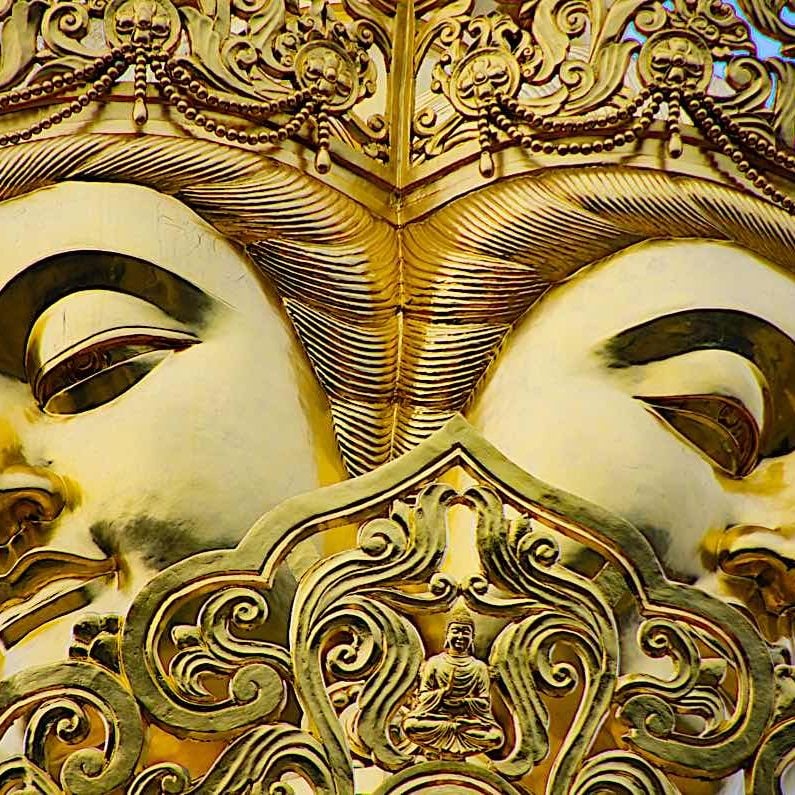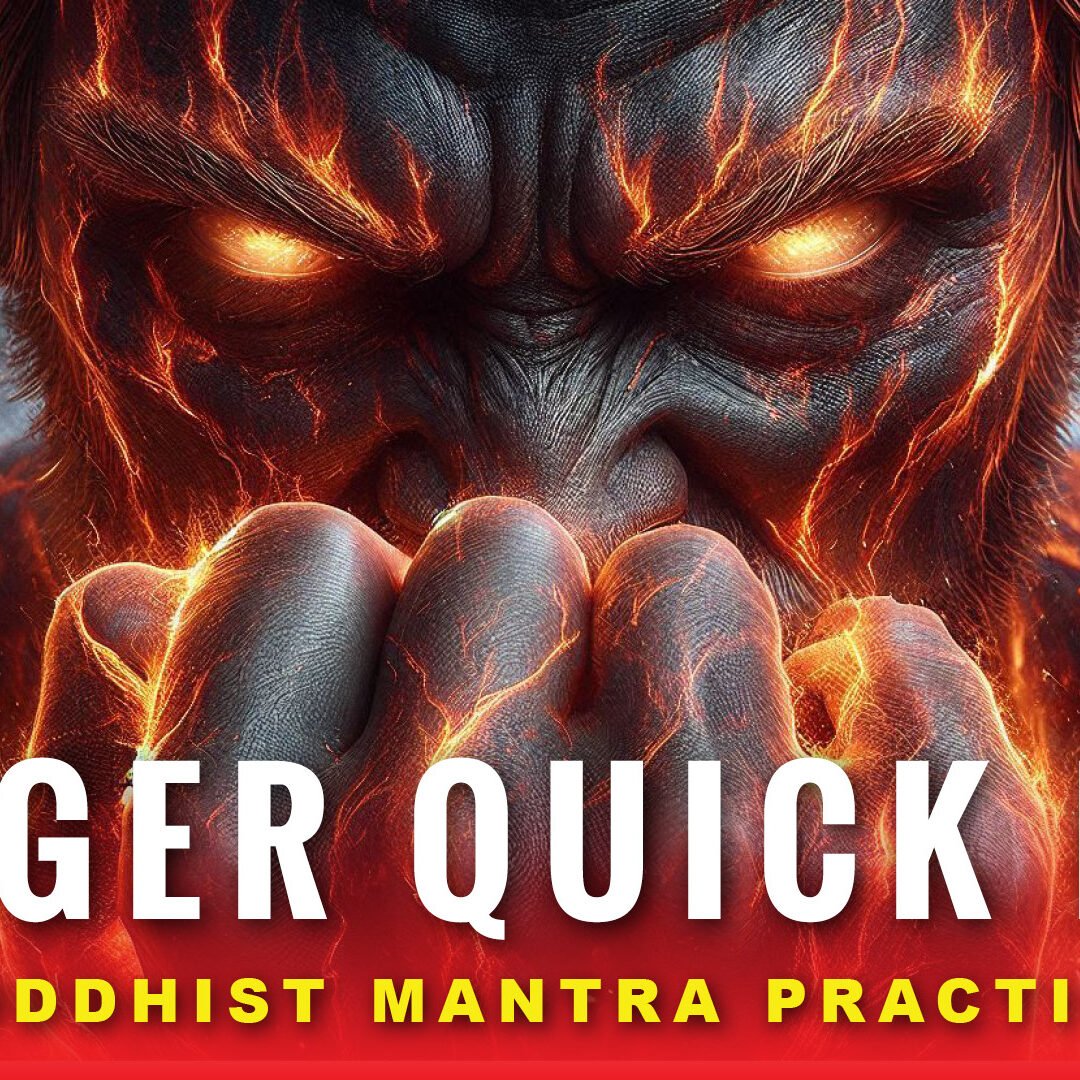“What Bodhisattvas Do” 37 Practices of All Bodhisattvas: the Total Path, a Daily Recitation, a Perfect Buddhist Practice and Lifestyle

What are The Thirty-Seven Practices of All the Bodhisattvas and why are they so revered in Mahayana?
“One of the most famous native Tibetan texts on mind training, this classic by Tokme Zangpo summarises the teachings of Śāntideva’s Bodhicaryāvatāra and other sources, in order to present the path of the bodhisattva in just thirty-seven four-line verses.” – Lotsawa House
The verses were composed by the great Gyalse Tokme Zangpo (born 1295), a pivotal teacher, abott and prolific writer in Buddhist philosophy. Perhaps his best known work of his 115 published works was the “Thirty-Seven Practices of All the Bodhisattvas” in a lyrical, chant-able style that encapsulates a complete Bodhisattva path. Its lyrical verses are structured in a systematic manner to remind us of the 37 aspects of the Bodhisattva path to Enlightenment. It is both a teaching and daily reminder of the conduct and practices of Bodhsiattvas.

In modern verse, as published by the Garchen Institute, it is even more lyrical in English, chantable with a tuen, with each verse punctuated with the line “What Bodhisattvas Do.”
This chant is both a how-to practice and a reminder, with the ultimate intent of benefiting all sentient beings.
“The Thirty-Seven Practices of All the Bodhisattvas is a profound and comprehensive exposition of the path of the Bodhisattvas, offered in a form suitable for both meditation and study. It serves as an effective daily practice and an encapsulation of the Mahayana Buddhist tradition.” – Dzongsar Jamyang Khyentse Rinpoche
Garchen Rinpoche teaching on the 37 Practices:
The significance of this teaching, however, goes beyond its immersive verses. By reciting and studying this chant, one sets the Bodhichitta intention, the aspiration to become Enlightened for the benefit of all sentient beings. It is also reinforcing the attitudes and practices of altruism, metta, and compassion, essential virtues espoused by the Bodhisattvas.

A Quintessential Guide to the Bodhisattva Path
the BodThe Thirty-Seven Practices of All the Bodhisattvas is a quintessential guide to understanding and following the Bodhisattva path. Summarizing core Mahayana teachings, this text outlines the practices conducive to attaining enlightenment for the benefit of all sentient beings (Bhattacharya, K., 2007).
With this in mind, see this practice as more than a mere chant. Look at it as a spiritual blueprint that guides you toward compassion, wisdom, and ultimate enlightenment, contributing to a better understanding and practice of the Mahayana tradition.
- Bhattacharya, K., 2007. The Thirty-Seven Practices of Bodhisattvas. Journal of Buddhist Ethics, 24(5), pp.853-867.
The Dalai Lama Video: Teaching on 37 Practices:
Version 1: In verse form
As published by Garchen Institute
What Bodhisattvas Do
Although seeing all dharmas neither come nor go
To help wandering beings sole effort you show.
To the supreme Guru and savior Chenrezi,
With respectful three doors I prostrate constantly.
The perfect Buddhas, source of help and happiness,
Are born when sublime dharma has been accomplished.
And since that depends upon knowing what to do
The bodhisattvas’ practice, I’ll explain to you.
1. When the rare ship of freedom and riches is won,
For us and others to cross samsara’s ocean
Without any neglect both the day and night through
To hear, think, and train is what bodhisattvas do.
2. To our close kith and kin, like water passion sways.
To our distant enemies, like fire hatreds blaze.
Forgetting discernment, dark ignorance ensues.
To cast off homelands is what bodhisattvas do.
3. Afflictions slowly fade when bad places are shunned.
Virtue easily grows where there’s no distraction.
With a clear mind trust in the dharma is produced.
To stay secluded is what bodhisattvas do.
4. From each and every dear companion we will part.
We will leave possessions for which we’ve strived so hard.
The body’s guest house the guest, consciousness, will lose.
To renounce this life is what bodhisattvas do.
5. When with certain people, the three poisons increase.
Hearing, thinking, and training decline and grow weak.
Love and compassion become completely removed.
To give up bad friends is what bodhisattvas do.
6. When attending special people, faults are consumed.
Qualities increase like the waxing of the moon.
To cherish sublime teachers with greater value,
Than our own body is what bodhisattvas do.
7. Within samsara’s dungeons they themselves are chained.
So, who do worldly gods have the power to save?
Thus, in the three jewels’ undeceiving refuge
To go for shelter is what bodhisattvas do.
8. The most hard to bear are lower realms’ sufferings.
Shakyamuni taught they are the fruit of bad deeds.
Therefore, even at the cost of our lives, to choose
To never do wrong is what bodhisattvas do.
9. The pleasures of the three realms are like dew on grass.
They fall to peril in a momentary flash.
For the unchanging state of freedom absolute,
To seek and to strive is what bodhisattvas do.
10. Since beginningless time, us they have had love for.
What good is happiness, when our mothers suffer?
To free infinite beings by giving birth to
The enlightened mind is what bodhisattvas do.
11. From desire for pleasure all suffering springs forth.
From thoughts to help others complete Buddhas are born.
To take others’ pain as we fully substitute
Our own happiness is what bodhisattvas do.
12. Even if those by force of greedy obsession,
Steal or have stolen all our wealth and possessions,
To offer them our bodies, wealth, and all virtues
Within the three times is what bodhisattvas do.
13. Even without having done the slightest of faults
If people come along and cut our heads right off,
Through compassion’s power, to take their non-virtues
All upon ourselves is what bodhisattvas do.
14. Even if about us people speak vicious words
And proclaim them across the entire universe,
With a pure heart of love to express through and through
All their qualities is what bodhisattvas do.
15. At gatherings of masses, even if people
Expose all our hidden faults and call us evil,
Recognizing them as our teachers of virtue, T
o bow with respect is what bodhisattvas do.
16. Even if those for whom we have cared like our child
Look upon us as if we are their arch rivals,
Like a mother for her children stricken with flu,
To love them still more is what bodhisattvas do.
7. Even if equal or inferior beings,
Under power of pride degrade us and demean,
To show respect for them as we would our Guru
Received on our crowns is what bodhisattvas do.
18. Destitute and by people forever despised,
Stricken by grave illness and demons in our lives, Still, the sin and pain of all beings to assume
With courageous hearts is what bodhisattvas do.
19. Although famous and revered by many beings,
With a great fortune like the god of wealth achieved,
To see that grandeurs of existence have no truth,
And not be haughty is what bodhisattvas do.
20. If our enemy of hatred has not been tamed,
Outer foes may be vanquished, yet still escalate.
With armies of love and compassion to subdue
Our own stream of mind is what bodhisattvas do.
21. Salty water and sense pleasures are much the same.
However much enjoyed, thirsts grow and never fade.
All things by which longing and desire are produced
To cast off at once is what bodhisattvas do.
22. Whatever the appearance, it is our own mind.
Mind’s nature transcends concepts since primeval time.
Attributes of something grasped and one grasping to
Not to form in mind is what bodhisattvas do.
23. When meeting with objects so lovely to the mind,
Just like rainbows that appear in the summertime
Beautiful things appear, yet see they have no truth.
To give up desire is what bodhisattvas do.
24. All agonies are like our child’s death in a dream.
Holding illusions as real, we grow most weary.
When situations of adversity ensue,
To see illusion is what bodhisattvas do.
25. We must give even our lives for enlightenment.
Do outer objects really need to be mentioned?
With no hope for reward or karma to bear fruit
To be generous is what bodhisattvas do.
26. If without discipline our own goal is not reached,
Quite laughable a wish to help others would seem.
Without having any mundane intent pursued
To guard discipline is what bodhisattvas do.
27. For bodhisattvas who wish for virtue’s pleasure,
All doers of harm are like a precious treasure.
Towards all without having hostile attitudes
To practice patience is what bodhisattvas do.
28. Hearers and self-made Buddhas work just for themselves.
Yet, strive like it’s a fire on their heads that they quell.
To rouse diligence, the source of fine attributes,
For all beings’ sake is what bodhisattvas do.
29. Understanding through insight while resting calmly
Our afflictions are brought to their entire defeat,
To practice concentration that transcends in truth
The four formless realms is what bodhisattvas do.
30. Our complete enlightenment can not be achieved,
Through the first five perfections, with wisdom lacking.
To practice wisdom with method and no thought to
Three separate spheres is what bodhisattvas do.
31. When our very mistakes we fail to comprehend,
Though seeming like dharma, we may do wrong actions.
With our mistakes constantly inquired into
To abandon them is what bodhisattvas do.
32. If under power of afflictions, we discuss
Other bodhisattva’s faults we become corrupt.
To speak not of the faults of those who’ve gone into
The great vehicle is what bodhisattvas do.
33. Seeking gain and respect will lead to quarreling.
Hearing, thinking, and training decline and grow weak.
To give up clinging to the households of those who
Are kin and patrons is what bodhisattvas do.
34. Harsh words create disturbances in others’ minds,
And lead the bodhisattva’s conduct to decline.
To give up the harsh words which are unpleasant to
The minds of others is what bodhisattvas do.
35. When afflictions are habits, they’re hard to turn back.
So with the sword-like cure of mindfulness in grasp,
As soon as afflictions like desire are produced,
To strike them right down is what bodhisattvas do.
36. In short, in all activities we undertake,
We must ask, “How is my mind in this present state?”
Fulfilling the goal of others through continued
Mindful awareness is what bodhisattvas do.
37. To dispel sufferings of infinite beings,
Understanding the three spheres’ complete purity,
To dedicate such earnestly attained virtue
For enlightenment is what bodhisattvas do.
Adhering to the teachings of the sublime ones,
Meanings of sutras, tantras, and explanations,
I wrote for those wishing to follow the path through,
These thirty-seven things that bodhisattvas do.
Since I have a poor mind and my learning is weak,
Scholars will not be pleased by this poetry.
Yet since I drew from sutras and sublime teachings,
These practices are without mistakes, I believe.
Still bodhisattvas’ actions are waves of greatness,
And it’s hard for my poor mind to fathom their depths.
For faults, errors, contradictions, and all the rest
O’ sublime ones have patience, I humbly request!
May all beings, by virtue arising from this, Through bodhichitta relative and ultimate, Dwelling not in extremes of existence or peace, Become the same as our protector Chenrezi.
For the sake of benefiting himself and others, the scripture and logic expounding monk, Thogme (1295-1369), composed this in the Ngülchu Rinchen Cave.
Version 2:
The Thirty-Seven Practices of All the Bodhisattvas
by Gyalse Tokme Zangpo
Namo Lokeśvarāya!
You see that all things are beyond coming and going,
Yet still you strive solely for the sake of living beings—
To you, my precious guru inseparable from Lord Avalokita,
I offer perpetual homage, respectfully, with body, speech and mind.
The perfect buddhas, who are the source of all benefit and joy,
Come into being through accomplishing the sacred Dharma.
And since this in turn depends on knowing how to practise,
I shall now describe the practices of all the buddhas’ heirs.
1. The practice of all the bodhisattvas is to study, reflect and meditate,
Tirelessly, both day and night, without ever straying into idleness,
In order to free oneself and others from this ocean of saṃsāra,
Having gained this supreme vessel—a free, well-favoured human life, so difficult to find.
2. The practice of all the bodhisattvas is to leave behind one’s homeland,
Where our attachment to family and friends overwhelms us like a torrent,
While our aversion towards enemies rages inside us like a blazing fire,
And delusion’s darkness obscures what must be adopted and abandoned.
3. The practice of all the bodhisattvas is to take to solitary places,
Avoiding the unwholesome, so that destructive emotions gradually fade away,
And, in the absence of distraction, virtuous practice naturally gains strength;
Whilst, with awareness clearly focused, we gain conviction in the teachings.
4. The practice of all the bodhisattvas is to renounce this life’s concerns,
For friends and relatives, long acquainted, must all go their separate ways;
Wealth and prized possessions, painstakingly acquired, must all be left behind;
And consciousness, the guest who lodges in the body, must in time depart.
5. The practice of all the bodhisattvas is to avoid destructive friends,
In whose company the three poisons of the mind grow stronger,
And we engage less and less in study, reflection and meditation,
So that love and compassion fade away until they are no more.
6. The practice of all the bodhisattvas is to cherish spiritual friends,
By regarding them as even more precious than one’s own body,
Since they are the ones who will help to rid us of all our faults,
And make our virtues grow ever greater just like the waxing moon.
7. The practice of all the bodhisattvas is to take refuge in the Three Jewels,
Since they will never fail to provide protection for all who call upon them,
For whom are the ordinary gods of this world ever capable of helping,
As long as they themselves are trapped within saṃsāra’s vicious cycle?
8. The practice of all the bodhisattvas is never to commit a harmful act,
Even though not to do so might put one’s very life at risk,
For the Sage himself has taught how negative actions will ripen
Into the manifold miseries of the lower realms, so difficult to endure.
9. The practice of all the bodhisattvas is to strive towards the goal,
Which is the supreme state of changeless, everlasting liberation,
Since all the happiness of the three realms lasts but a moment,
And then is quickly gone, just like dewdrops on blades of grass.
10. The practice of all the bodhisattvas is to arouse bodhicitta,
So as to bring freedom to all sentient beings, infinite in number.
For how can true happiness ever be found while our mothers,
Who have cared for us throughout the ages, endure such pain?
11. The practice of all the bodhisattvas is to make a genuine exchange
Of one’s own happiness and wellbeing for all the sufferings of others.
Since all misery comes from seeking happiness for oneself alone,
Whilst perfect buddhahood is born from the wish for others’ good.
12. Even if others, in the grips of great desire, should steal,
Or encourage others to take away, all the wealth that I possess,
To dedicate to them entirely my body, possessions and all my merits
From the past, present and future— this is the practice of all the bodhisattvas.
13. Even if others should seek to cut off my head,
Though I’ve done them not the slightest wrong,
To take upon myself, out of compassion,
All the harms they have amassed—this is the practice of all the bodhisattvas.
14. Even if others should declare before the world
All manner of unpleasant things about me,
To speak only of their qualities in return,
With a mind that’s filled with love—this is the practice of all the bodhisattvas.
15. Even if others should expose my hidden faults or deride me
When speaking amidst great gatherings of many people,
To conceive of them as spiritual friends and to bow
Before them in respect—this is the practice of all the bodhisattvas.
16. Even if others whom I have cared for like children of my own
Should turn upon me and treat me as an enemy,
To regard them only with special fondness and affection,
As a mother would her ailing child—this is the practice of all the bodhisattvas.
17. Even if others, equal or inferior to me in status,
Should, out of arrogance, disparage me,
To honour them, as I would my teacher,
By bowing down my head before them—this is the practice of all the bodhisattvas.
18. Even though I may be destitute and despised by all,
Beset with terrible illness and plagued by evil spirits,
Still to take upon myself all beings’ ills and harmful actions,
Without ever losing heart—this is the practice of all the bodhisattvas.
19. Even though I may be famous and revered by all,
And as rich as Vaiśravaṇa, the god of wealth himself,
To see the futility of all the glory and riches of this world
And to remain without conceit—this is the practice of all the bodhisattvas.
20. The practice of all the bodhisattvas is to subdue the mind
With the forces of loving kindness and compassion.
For unless the real adversary—my own anger—is defeated,
Outer enemies, though I may conquer them, will continue to appear.
21. The practice of all the bodhisattvas is to turn away immediately
From those things which bring desire and attachment.
For the pleasures of the senses are just like salty water:
The more we taste of them, the more our thirst increases.
22. The practice of all the bodhisattvas is never to entertain concepts,
Which revolve around dualistic notions of perceiver and perceived,
In the knowledge that all these appearances are but the mind itself,
Whilst mind’s own nature is forever beyond the limitations of ideas.
23. The practice of all the bodhisattvas is to let go of grasping
When encountering things one finds pleasant or attractive,
Considering them to be like rainbows in the summer skies—
Beautiful in appearance, yet in truth devoid of any substance.
24. The practice of all the bodhisattvas is to recognize delusion
Whenever one is confronted by adversity or misfortune.
For these sufferings are just like the death of a child in a dream,
And it’s so exhausting to cling to delusory perceptions as real.
25. The practice of all the bodhisattvas is to give out of generosity,
With no hopes of karmic recompense or expectation of reward.
For if those who seek awakening must give even their own bodies,
What need is there to mention mere outer objects and possessions?
26. The practice of all the bodhisattvas is to observe ethical restraint,
Without the slightest intention of continuing in saṃsāric existence.
For lacking discipline one will never secure even one’s own wellbeing,
And so any thought of bringing benefit to others would be absurd.
27. The practice of all the bodhisattvas is to cultivate patience,
Free from any trace of animosity towards anyone at all,
Since any potential source of harm is like a priceless treasure
To the bodhisattva who is eager to enjoy a wealth of virtue.
28. The practice of all the bodhisattvas is to strive with enthusiastic diligence—
The source of all good qualities—when working for the sake of all who live;
Seeing that even śrāvakas and pratyekabuddhas, who labour for themselves alone,
Exert themselves as if urgently trying to extinguish fires upon their heads.
29. The practice of all the bodhisattvas is to cultivate concentration,
Which utterly transcends the four formless absorptions,
In the knowledge that mental afflictions are overcome entirely
Through penetrating insight suffused with stable calm.
30. The practice of all the bodhisattvas is to cultivate wisdom,
Beyond the three conceptual spheres, alongside skilful means,
Since it is not possible to attain the perfect level of awakening
Through the other five pāramitās alone, in wisdom’s absence.
31. The practice of all the bodhisattvas is to scrutinize oneself
Continually and to rid oneself of faults whenever they appear.
For unless one checks carefully to find one’s own confusion,
One might appear to be practising Dharma, but act against it.
32. The practice of all the bodhisattvas is never to speak ill
Of others who have embarked upon the greater vehicle,
For if, under the influence of destructive emotions,
I speak of other bodhisattvas’ failings, it is I who am at fault.
33. The practice of all the bodhisattvas is to let go of attachment
To the households of benefactors and of family and friends,
Since one’s study, reflection and meditation will all diminish
When one quarrels and competes for honours and rewards.
34. The practice of all the bodhisattvas is to avoid harsh words,
Which others might find unpleasant or distasteful,
Since abusive language upsets the minds of others,
And thereby undermines a bodhisattva’s conduct.
35. The practice of all the bodhisattvas is to slay attachment
And the rest—mind’s afflictions—at once, the very moment they arise,
Taking as weapons the remedies held with mindfulness and vigilance.
For once the kleshas have become familiar, they’ll be harder to avert.
36. In short, no matter what one might be doing,
By examining always the status of one’s mind,
With continuous mindfulness and alertness,
To bring about the good of others—this is the practice of all the bodhisattvas.
37. The practice of all the bodhisattvas is to dedicate towards enlightenment
All the virtue to be gained through making effort in these ways,
With wisdom that is purified entirely of the three conceptual spheres,
So as to dispel the sufferings of the infinity of beings.
Here I have set down for those who wish to follow the bodhisattva path,
Thirty-seven practices to be adopted by all the buddhas’ heirs,
Based on what is taught in the sūtras, tantras and treatises,
And following the instructions of the great masters of the past.
Since my intellect is only feeble and I have studied but a little,
This is not a composition likely to delight the connoisseurs,
Yet since I’ve relied upon the sūtras and what the saints have taught
I feel these are indeed the genuine trainings of the buddhas’ heirs.
Still, the tremendous waves of activity of the bodhisattvas
Are difficult for simple-minded folk like me to comprehend,
And I must therefore beg the indulgence of all the perfect saints
For any contradictions, irrelevancies or other flaws this may contain.
Through whatever merit has here been gained, may all beings
Generate sublime bodhicitta, both relative and absolute,
And through this, come to equal Lord Avalokiteśvara,
Transcending the extremes of existence and quiescence.
This was composed in Jewel Cave (Rinchen Puk) in Ngulchu by the monk Tokme, a teacher of scripture and reasoning, for his own and others’ benefit.
| Translated by Adam Pearcey, 2006.
NOTES
[1] Lotsawa House
More articles by this author

Who is my Enlightened Life Protector Based on Tibetan Animal Sign Zodiac in Buddhism? According to Mewa, Mahayana tradition and Kalachakra-based astrology (with Mantra Videos!)

4 Guardians of the World and Dharma: the Watchers of the World: the Four Heavenly Kings in Buddhism, Their Mantras and Practice

Samantabhadra’s The King of Prayers is the ultimate Buddhist practice how-to and itself a complete practice
Search
Latest Features
Please support the "Spread the Dharma" mission as one of our heroic Dharma Supporting Members, or with a one-time donation.
Please Help Support the “Spread the Dharma” Mission!

Be a part of the noble mission as a supporting member or a patron, or a volunteer contributor of content.
The power of Dharma to help sentient beings, in part, lies in ensuring access to Buddha’s precious Dharma — the mission of Buddha Weekly. We can’t do it without you!
A non-profit association since 2007, Buddha Weekly published many feature articles, videos, and, podcasts. Please consider supporting the mission to preserve and “Spread the Dharma." Your support as either a patron or a supporting member helps defray the high costs of producing quality Dharma content. Thank you! Learn more here, or become one of our super karma heroes on Patreon.
Lee Kane
Author | Buddha Weekly
Lee Kane is the editor of Buddha Weekly, since 2007. His main focuses as a writer are mindfulness techniques, meditation, Dharma and Sutra commentaries, Buddhist practices, international perspectives and traditions, Vajrayana, Mahayana, Zen. He also covers various events.
Lee also contributes as a writer to various other online magazines and blogs.















